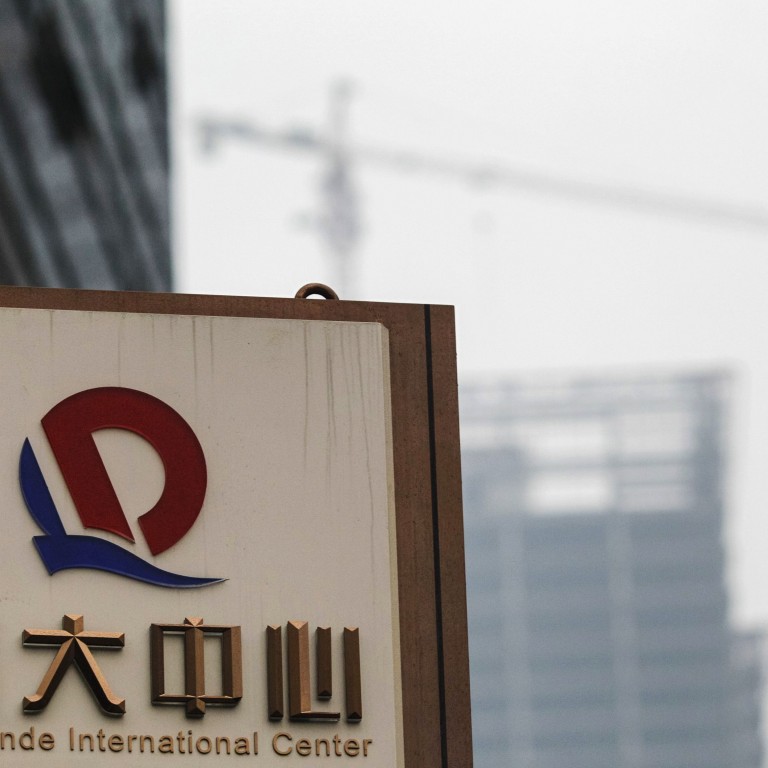
We know mainland credit rating agencies do things differently from their international peers. We just don't know how.
Last week, debt-ridden property developer Evergrande Group announced that three domestic agencies had given it an AAA rating, which was also applied to its freshly issued five billion yuan (HK$6.3 billion) domestic bond.
The three are Dagong Global, Lianhe and China Chengxin Credit Rating - all stated owned.
Their appraisals are in sharp contrast with the non-investment grade rating that Evergrande received from Moody's, Standard & Poor's and Fitch. In fact, S&P this month downgraded it from BB-minus to B-plus.
This is not the first time the mainland and international agencies disagree. Gazprom, the former Soviet-era ministry of gas industry, got a Baa3 from Moody's and AAA from Dagong because of their conflicting views on the Russian economy.
The debt of Evergrande is, however, too big to ignore. It has ballooned from 60.2 billion yuan to 156 billion yuan between 2012 and 2014. This does not include a 52.8 billion yuan perpetual capital instrument issued recently. If included, its gearing ratio would be 251 per cent instead of the 85.9 per cent claimed by the company.
Well, the international agencies have been wrong before. Have the domestic agencies found some hidden jewels in Evergrande? googled for the reports.
The report made some unattributed comments that Chengxin was impressed by Evergrande's refinancing strategy and risk control; Dagong liked its nationwide market; and Lianhe pointed to its growth. This report is all over the country's financial media.
Finally, a search on the country's three state-owned bond trading websites - where all the rating agencies are obliged to post their reports or updates - found one by Chengxin. There is none from Dagong or Lianhe.
In its bond offering document posted on the Shanghai Stock Exchange, Evergrande did not mention any rating by Dagong or Lianhe as it had done in its announcement to the Hong Kong exchange.
called the spokeswoman of Dagong. She confirmed its rating for Evergrande. However, when asked to provide the report, she said they were busy with a conference and would take some time to dig it up.
A receptionist at Lianhe said they have no press officer and hung up. Emails to its rating department have received no reply so far. Neither did the Evergrande spokesman answer ' emailed request for the reports.
So how did Chengxin justify its top rating for Evergrande? "The rating means the company has strong debt repayment ability. It is also isolated from adverse change in the economic condition," said the report.
Chengxin acknowledged that Evergrande's debt-related parameters have deteriorated. "However, its growing scale of economy, massive land bank and quick turnover will continue to provide strong support," said the agency.
asked bond analysts for comment. They tried hard not to laugh. "You are taking the rating too seriously," said one.
The fact is, an AAA rating is a must for any corporate to issue bonds in China. Be it top state firms like the oil giants, debt-ridden and multibillion-yuan loss-making state enterprises like Chalco, or cash-stripped brokerages, they all have got good ratings.
The ratings are so indiscriminate that one can't help but wonder which comes first: the credit rating or the regulator's informal nod for a bond issue.
To replenish their pockets for margin finance, 17 of the country's listed brokers gained the rating and approval to raise 379.9 billion yuan in the first six months.
As for Evergrande, its 208.8 billion yuan debt is a plus instead of a minus in its application for a bond issue. Just imagine it defaulting on any of that today. The toppling dominos would bury many.
In that sense, its AAA rating is well founded. The risk of default is indeed low.
